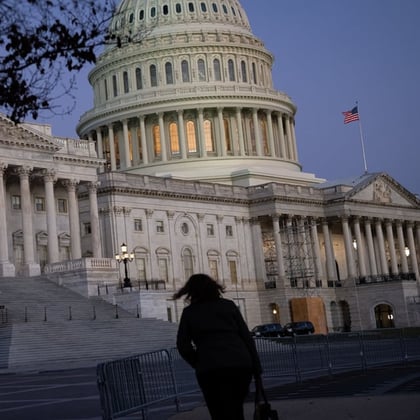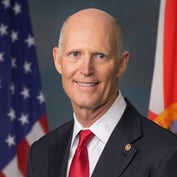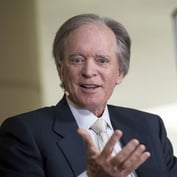The U.S. Senate is on a path Wednesday to block a Labor Department sustainable investing rule, marking a victory for Republicans in their crusade against “woke” capitalism that is expected to spark President Joe Biden’s first veto.
Moderate Democrats Jon Tester and Joe Manchin said they’ll vote with Republicans to end the rule, which would allow retirement plans to weigh climate change and other environmental, social and governance issues in their investment decisions. Three Senate Democrats are absent and others could join Tester and Manchin in supporting the GOP-led effort.
The bill’s expected passage marks a rare loss for Biden in the Senate, where Democrats now enjoy a one-seat majority. It also underscores how the politics of so-called ESG efforts will factor into the 2024 congressional and presidential races.
Tester, from Republican-leaning Montana, has already announced plans to run for reelection in 2024. Manchin, who is also up in 2024, is expected to face a well-funded GOP opponent for his West Virginia seat if he decides to run again.
Arizona’s Kyrsten Sinema, an independent who caucuses with Democrats but often votes with Republicans, also is up for reelection and has not said how she’ll vote on the bill.
“At a time when working families are dealing with higher costs, from health care to housing, we need to be focused on ensuring Montanans’ retirement savings are on the strongest footing possible,” Tester said in a statement. “I’m opposing this Biden Administration rule because I believe it undermines retirement accounts for working Montanans and is wrong for my state.”
The GOP-led House on Tuesday voted 216-204 to clear a similar measure. Republicans have blasted the rule, which would make it easier for plan managers to consider so-called ESG elements when they make investments and exercise shareholder rights like proxy voting.
The Congressional Review Act resolution needs just a simple majority of votes in the narrowly divided Democratic Senate. Three Democratic senators — John Fetterman of Pennsylvania, Jeff Merkley of Oregon and Dianne Feinstein of California — are expected to be absent for the vote.








 March 01, 2023 at 02:53 PM
March 01, 2023 at 02:53 PM












 Copyright © 2024 ALM Global, LLC. All Rights Reserved.
Copyright © 2024 ALM Global, LLC. All Rights Reserved.